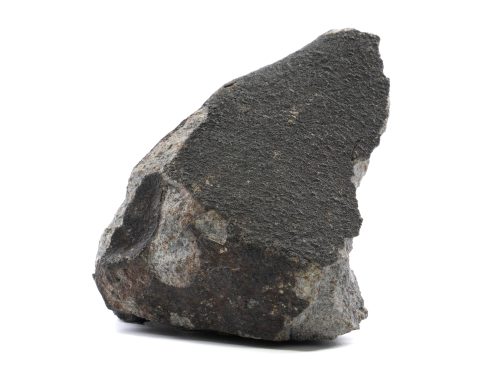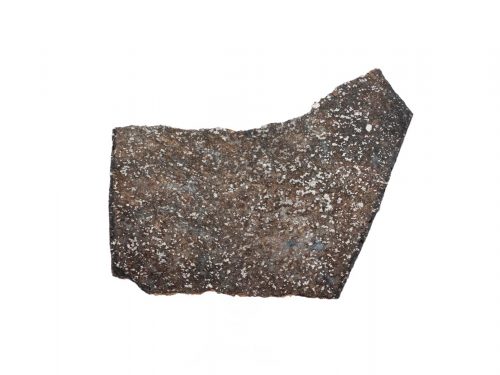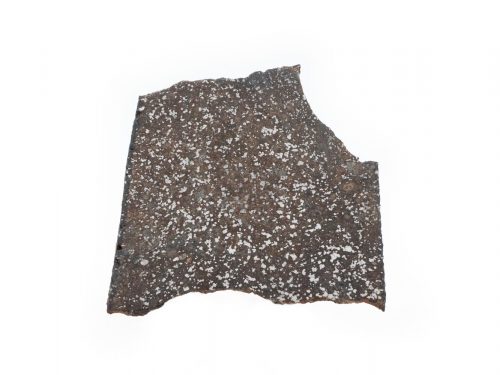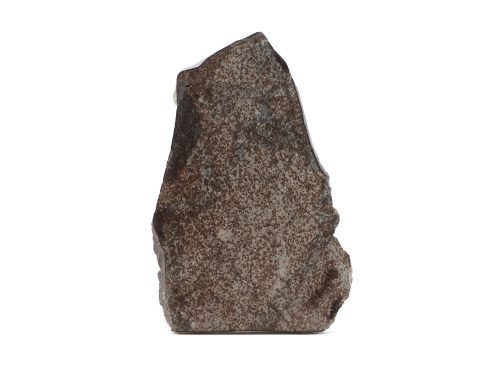Zag
Ordinary chondrite, H3-6
Witnessed fall in Western Sahara, August 1998
The Zag meteorite has a remarkable history. The fireball which produced it was witnessed by nomads in the Western Sahara. There was some debate as to the actual date, which is why the fall is described as ”August 4 or 5.” The nomads found the fall site, and packed the stone meteorites out of the desert on the backs of their camels. Nomads broke one of the large pieces up to see what was inside, hence the fragments.
Zag is interesting for other reasons that its colorful recovery story. It is believed to have originated on the asteroid 6 Hebe, is one of the very few meteorites to exhibit slickenside and recent research has also shown that it contains water! Only a tiny handful of meteorite specimens boast such a colorful and fascinating history. The Zag meteorite gives us a distance glimpse of the forces and processes at work in our solar system. (Please note that Zag includes comparatively small amounts of water that were measured by sophisticated lab equipment. Water is not visible to the naked eye.)
A witnessed fall is a meteorite whose arrival on our planet was seen and documented by credible observers. Witnessed falls are very rare, and are highly prized by collectors. Slickenside is a geological term used to describe a polished face on a rock, created when two adjacent masses move against each other for a prolonged period of time. While fairly commonplace on earth, slickenside is extremely rare in meteorites, and shows us that some of the processes at work on astral bodies such as large asteroids, are very similar to those which occur on our home planet Earth. Zag and Carancas are two of the very few meteorites which show slickenside, and the dark surfaces are sometimes mistaken for fusion crust.
Showing all 4 results



